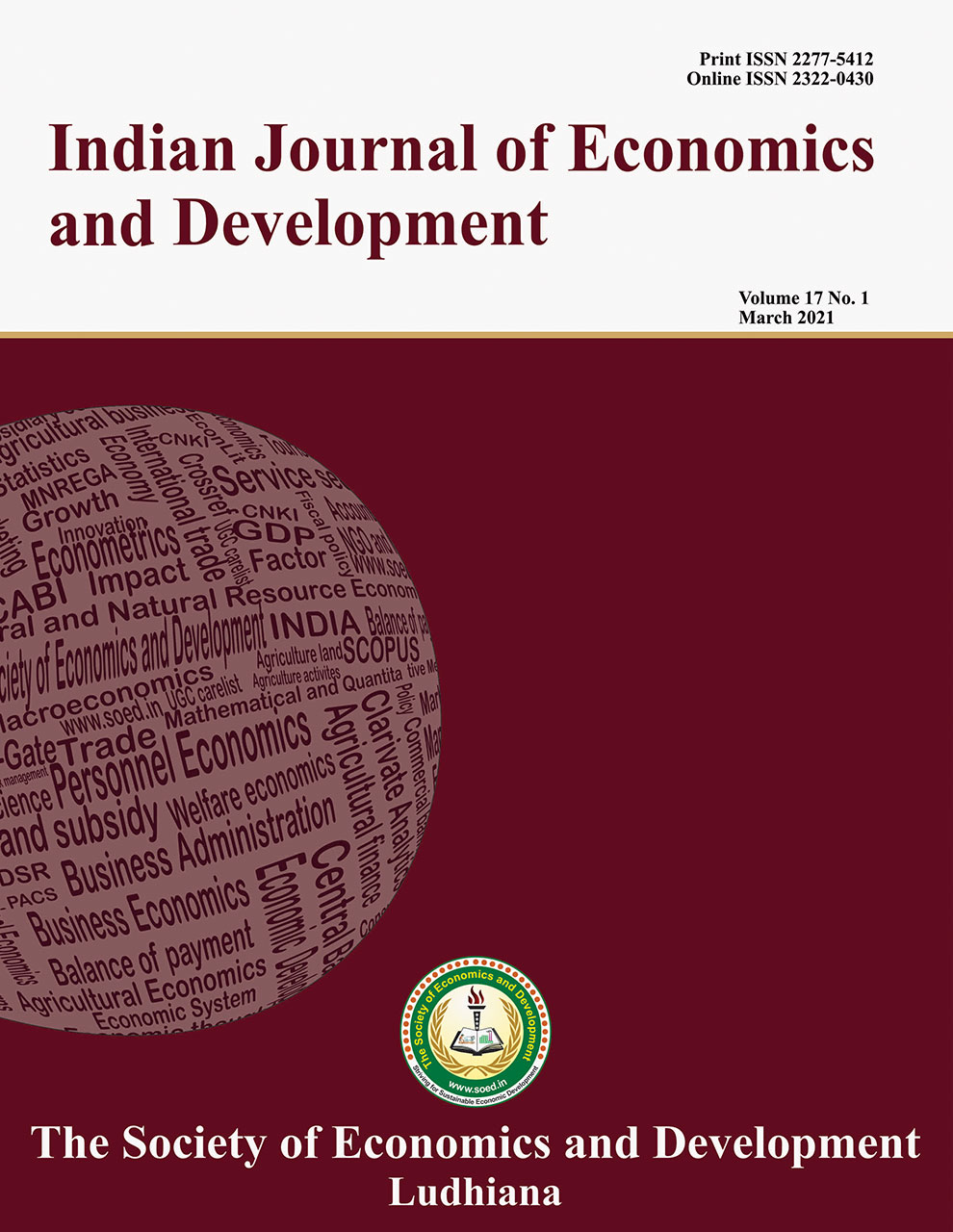Empowering Farmers through Future Price Information: A Case Study of Price Forecasting of Brinjal in Eastern Uttar Pradesh

Price: ₹ 500
Author: Pramod Kumar , P.S. Badal , R.K. Paul , G.K. Jha , P. Venkatesh , I.T. Kingsly , V. Kamalvanshi , M. Balasubramanian and P. Anbukkani
Author Address: 1Division of Agricultural Economics, ICAR-Indian Agriculture Research Institute, New Delhi-110012 2Department of Agricultural Economics, Institute of Agricultural Sciences, BHU, Varanasi-221005 (Uttar Pradesh) 3ICAR-Indian Agricultural Statistics Research
Keywords: ARIMA, empowering farmers, FPO, MAPE, MSE, price forecasting of vegetable, RMSE
JEL Codes: R14, Q11, Q21
Abstract
The study developed ARIMA forecasting model for brinjal prices for the markets of Eastern Uttar Pradesh. It was observed that the
ARIMA (1,0,1) with non-zero mean was suitable for both Lucknow and Allahabad markets. ARIMA (2,0,0) (0,1,0) (52), ARIMA
(1,1,0) (1,1,0) (52), ARIMA (1,1,2), ARIMA (2,0,0) (1,0,0) (52), ARIMA (3,1,1) were suitable for Delhi, Varanasi, Kolkata,
Gorakhpur, and Kanpur markets, respectively, based on lowest AIC values. The farmers and other supply chain actors of Eastern
Uttar Pradesh could plan their production and marketing activities looking into the price scenario projected for major markets in the
study. The highest price of brinjal was likely to prevail in the Kolkata market. To exploit distant markets, the farmers need to
organize themselves into groups to exploit economies of scale.
Description
Indian Journal of Economics and Development
Volume 16 No. 4, 2020, 479-488
DOI: https://doi.org/10.35716/IJED/20146
Indexed in Clarivate Analytics (ESCI) of WoS
Scopus: Title Accepted
NAAS Score: 4.82



